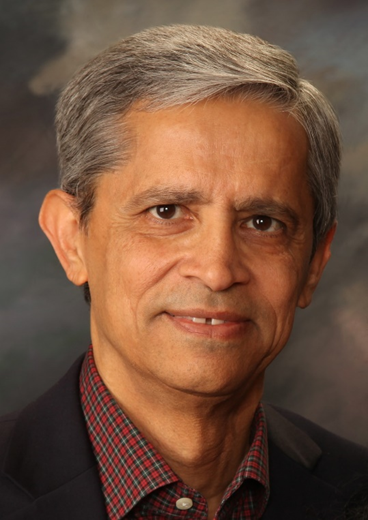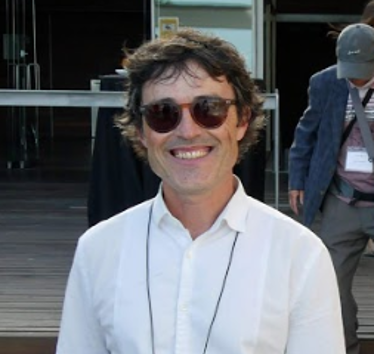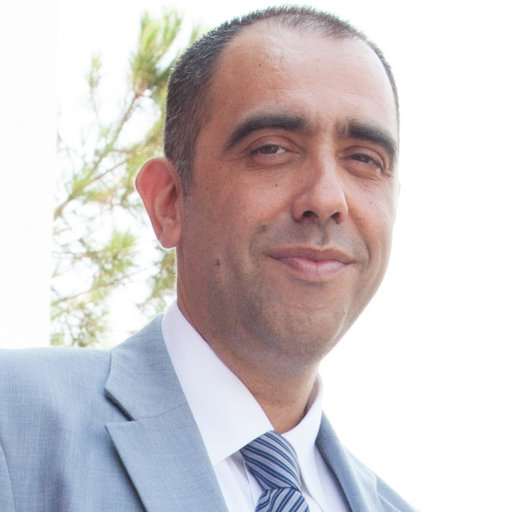
Ashok Mulchandani is Distinguished Professor of Chemical and Environmental Engineering (CEE) and W. Ruel Johnson Chair in Environmental Engineering. He joined UCR in 1991 as the founding/pioneering faculty in the Bourns College of Engineering and served as Chair of CEE Department (2000 to 2004) and Materials Science and Engineering Program (2016-2018). Dr. Mulchandani is a fellow of the American Association for the Advancement of Science and the American Institute for Medical and Biological Engineering. From 2003 to 2015 he was Editor-in-Chief of Applied Biochemistry and Biotechnology. Presently, he is Associate Editor of Frontiers in Chemistry, Analytical Section and a member of the editorial boards of several journals. His research focuses on the emerging area of BioNanotechnology, primarily creating bio/chemical sensors for applications in healthcare, environmental monitoring, personal/homeland security, and food safety/quality. He has published over 330 peer-reviewed journal articles, 15 book chapters, edited four books and delivered several Plenary, Keynote and invited talks. His work has been cited ~2,6300 times and has an h-index of 88 (in Google Scholar). Dr. Mulchandani has trained/mentored 35 Ph.D. students, 10 M.S. students, 40 Postdoctoral Fellows, 33 international visiting scholars and 76 undergraduate researchers
Availability of affordable, rapid, sensitive, specific biosensors are critical to prompt disease diagnosis, especially in developing areas with low resources. However, traditional technologies to detect disease biomarkers such as colorimetric lateral flow assays and polymerase chain reaction tests, suffer from low sensing performance, high operation complexity, high cost, and long assay time. Therefore, it is imperative to develop an affordable biosensing platform with high sensing performances and high user-friendliness to meet the WHO ASSURED criteria (affordable, sensitive, specific, user-friendly, rapid and robust, equipment-free, and deliverable to end-users) for diagnostic tools in resource-limited areas. In this presentation I will present our recent work on the development of the paper-based microfluidic chemiresistive biosensors employing single-walled carbon nanotubes (SWCNTs) and specific bioreceptors for the detection of protein and nucleic acid biomarkers in various biological samples for diagnostics in resource-limited settings.

I am currently a full professor (formerly a Ramón y Cajal researcher) at CS / UPC, and part of the SOCO SGR Research Group and the IDEAI Research Center. Member of the CIBER-BBN, IABiomed and the IEEE-CIS Data Mining and Big Data Analytics Technical Committee , in which I am Chair of the Explainable Machine Learning (EXML) Task Force and a member of the Task Force on Medical Data Analysis. Member of the Editorial Boards of PLoS ONE, Neural Processing Letters and Frontiers in Artificial Intelligence, Medicine and Public Health.
Special Sessions Currently Organized:
The Coming of Age of Explainable AI (XAI) and Machine Learning, IJCNN 2023, (Queensland, Australia)
Explainable AI in Healthcare (XAI-Healthcare 2023) Workshop, AIME 2023, (Portoroz, Slovenia)
Analysis of Molecular Dynamics Data in Proteomics, IWBBIO 2023, (Gran Canaria, Spain)

Dr Sotirios Kiokias is a PhD in the area of Food Chemistry and Nutrition (University of Reading/UK). In his early career (2002-2006) he performed EU funded postdoctoral research at Unilever R&D (The Netherlands) and National Technical University of Athens. In the period 2006-2016 he was employed as scientific expert by various EU Institutions (DG Enterprise & European Chemicals Agency/Finland). Since 2017, Dr Kiokias is a Research Program manager at the European Research Executive Agency of European Commission (Brussels), serving as the Coordinator of Chemistry Panel in MSCA-Staff exchanges Action. Dr Kiokias has published more than 40 scientific publications in international journals/book chapters and participated in a large number of International Food & Chemistry relevant Conferences.